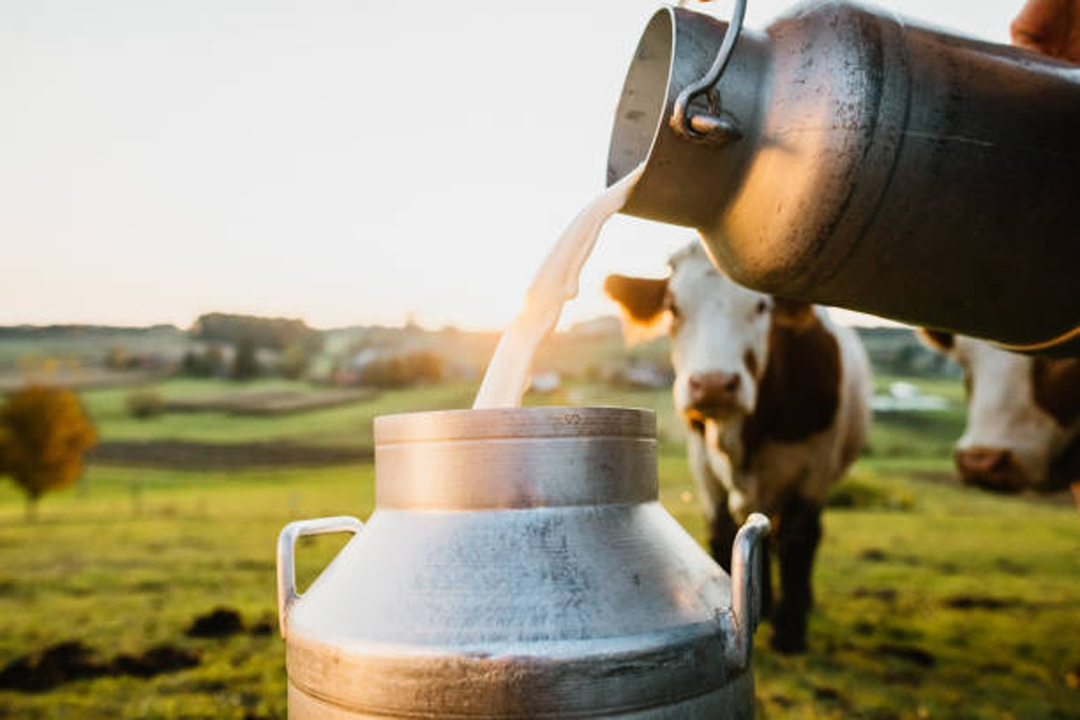
Navigate the misconceptions and half-truths by learning true facts about dairy farms. We’ll answer some of the most frequently asked questions.
How Do Farmers Make Sure Dairy Cows are Comfortable?
Comfort is a big concern for dairy farmers. Not only does it affect the production of milk, but farmers love their cows. Dairy cows always have access to fresh water and food. Shelters are also equipped with comfortable places to lay down. In the hot months, fans and water misters keep the cow cool. Barns are also designed to protect cows from cold weather too.
Do Dairy Cows Get Enough to Eat?
Yes. Dairy cows always have access to food so they can eat whenever they want. Since cows can eat a lot of things that humans can’t, farmers give them a lot of tasty byproducts that would otherwise go to a landfill. Hay, alfalfa, and harvested corn plants are all fed to dairy cows to ensure they stay full. Farmers also invest heavily in nutrient-dense food that keeps them healthy.
Are Cows Still Actually Milked By Hand?
Yes and no. This often depends on the size of the dairy farm and the preferences of the farmer. With today’s technology, farmers are more likely to use a milking machine rather than milking their cows manually. Milking machines are often more efficient than traditional milking methods and allow for a gentle and complete milking.
Does Milk Contain Antibiotics?
This is a common misconception. Milk is carefully tested to ensure that it’s free of antibiotics. Cows get sick and sometimes require antibiotics to fight off infections and other viruses. When that happens, the cow is separated from the herd and given medicine. Then their milk is collected separately and tested for antibiotics. Once it is free of antibiotics, the milk is then processed again.
Is There a Chance for Pesticides to Get into Milk?
Absolutely not. This is another myth that has no basis in fact. Dairy farmers must follow strict FDA guidelines to ensure that all milk is free of chemicals. Vigilant testing and careful practices ensure that milk is safe and healthy when it reaches the store.
Does Milk Contain Hormones?
Sometimes we hear labels thrown around but it’s done completely out of context. The topic of RBST and synthetic hormones is usually one of those topics that’s not put into context so let’s shed some light on it.
BST is a natural hormone found in cows that helps them stay healthy. It’s also key to milk production. All milk will contain a small amount of BST, whether it’s organic or not.
RBST is a synthesized version of BST that farmers can use to boost milk production in their herd. Extensive testing has been done by authorities like the FDA and NIH. These tests have proven that RBST is safe.
With that said, most milk you find at the store is not treated with RBST so it only contains BST. This is the “hormone” that you hear people talking about and it’s found in all dairy products since it’s naturally occurring.
Are Dairy Cows Well Taken Care Of?
Dairy cows are the number one priority for farmers so they’re definitely well taken care of. They receive regular vet checkups and are given a diet that’s specifically formulated to make them healthier. Farmers also invest heavily in their comfort. All of this is to ensure that cows live a healthy and productive life. In short, it benefits farmers to care for their animals.
Furthermore, farmers also participate in a program that holds them accountable for the well-being of their animals. This program is called Farmers Assuring Responsible Management (FARM). It’s a way for farmers to prove to consumers that the dairy industry takes care of its animals. They have a list of regulations to follow that require them to follow certain practices that are environmentally safe and produce wholesome milk while placing the well-being of their animals first.
Comments
comments